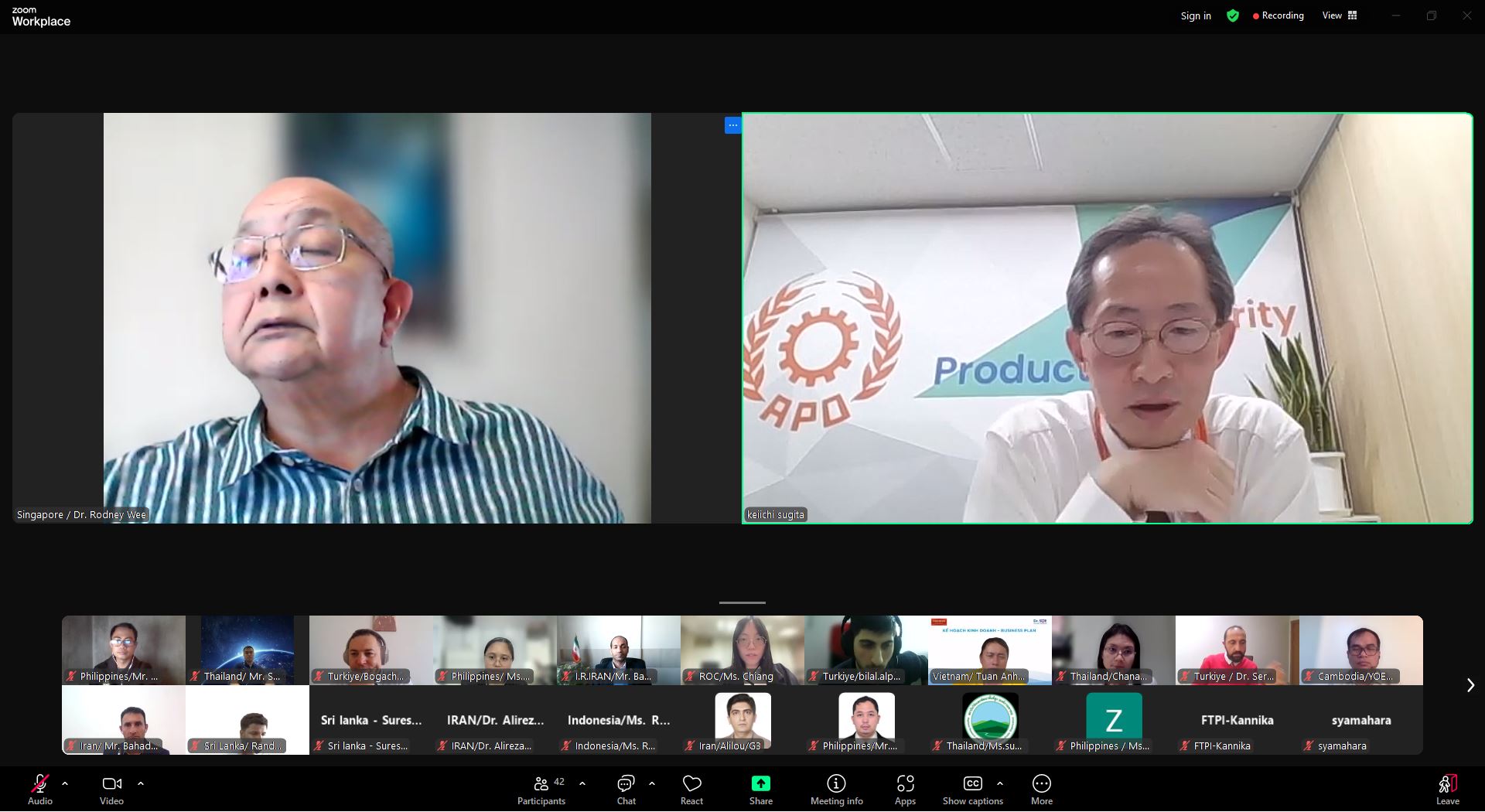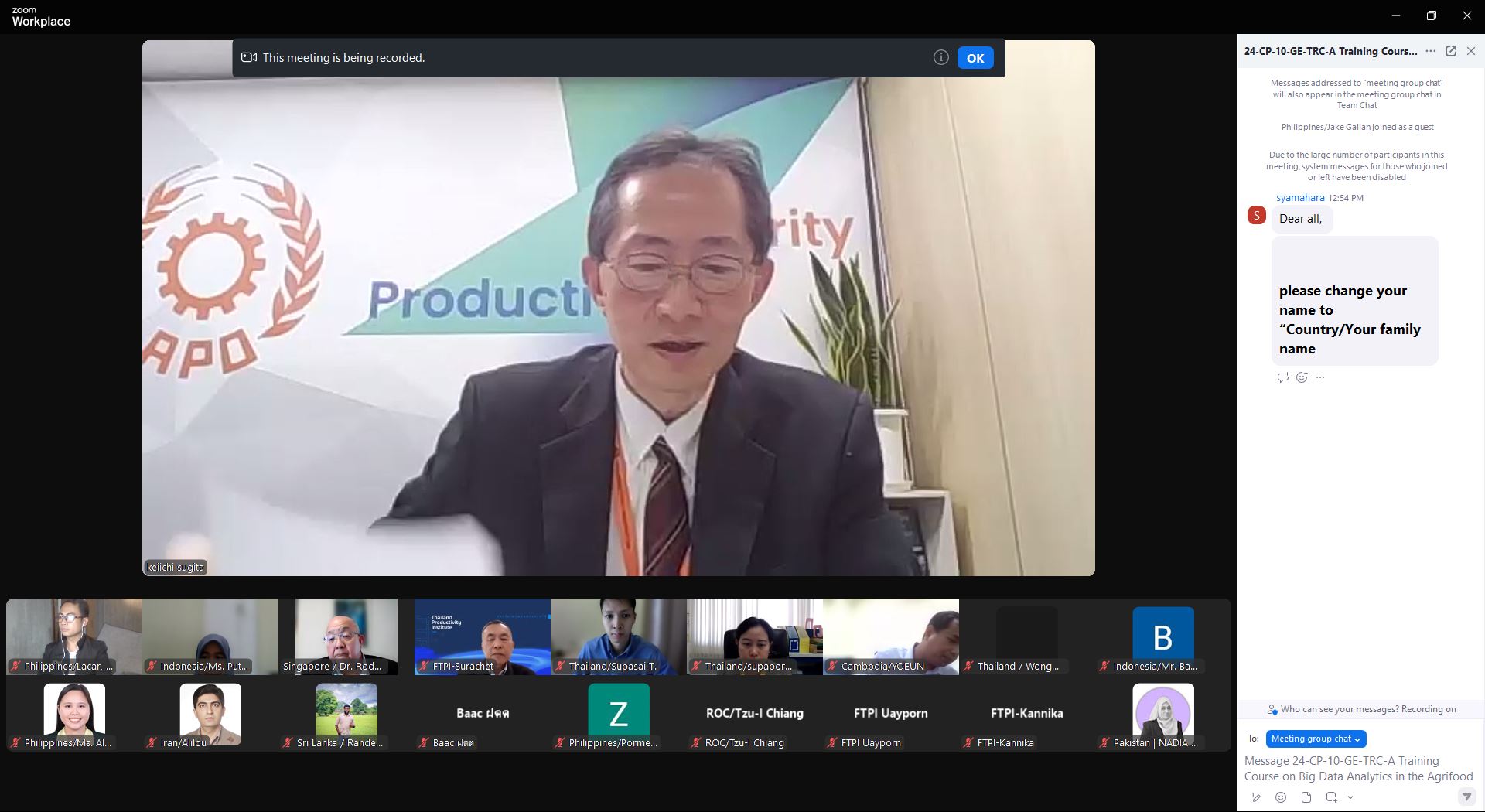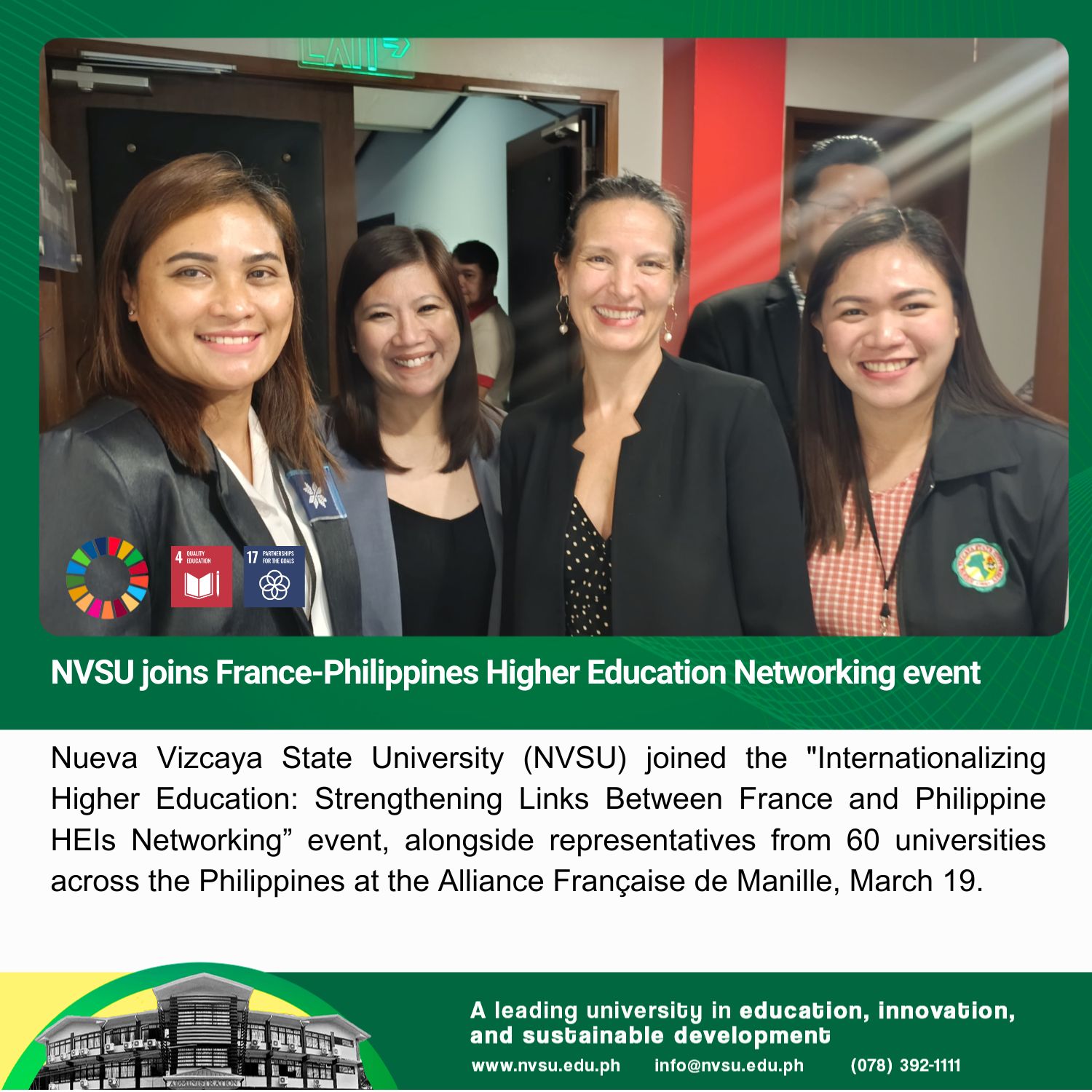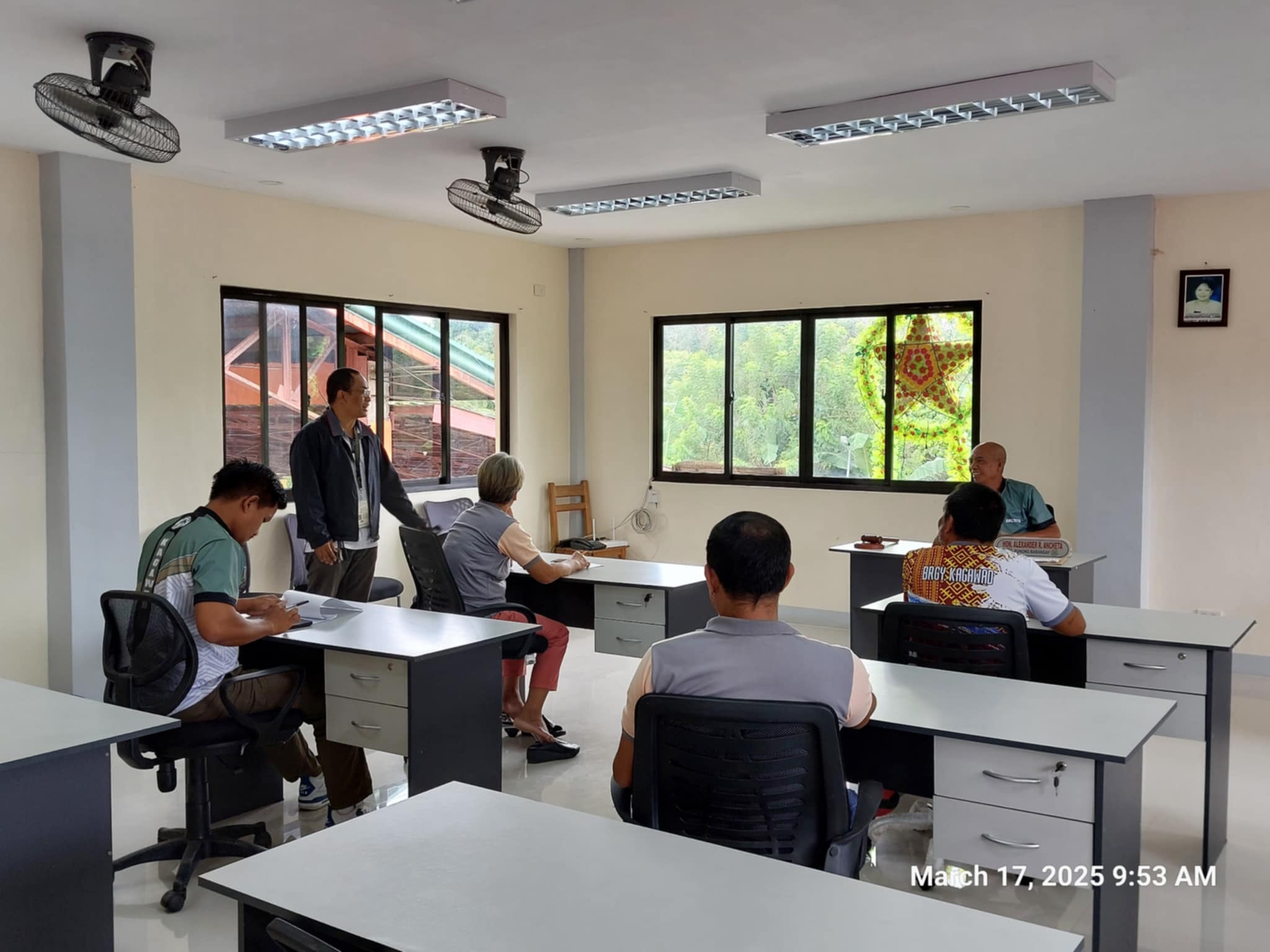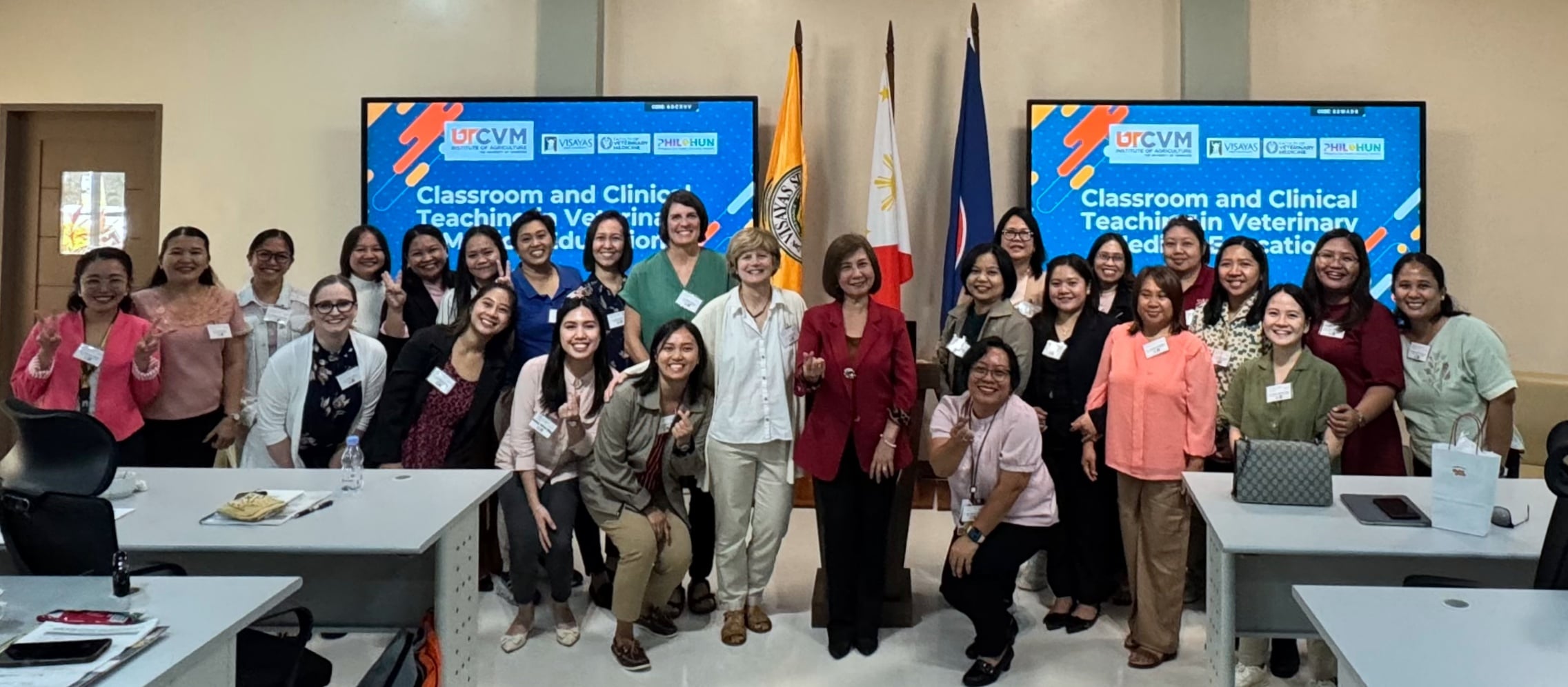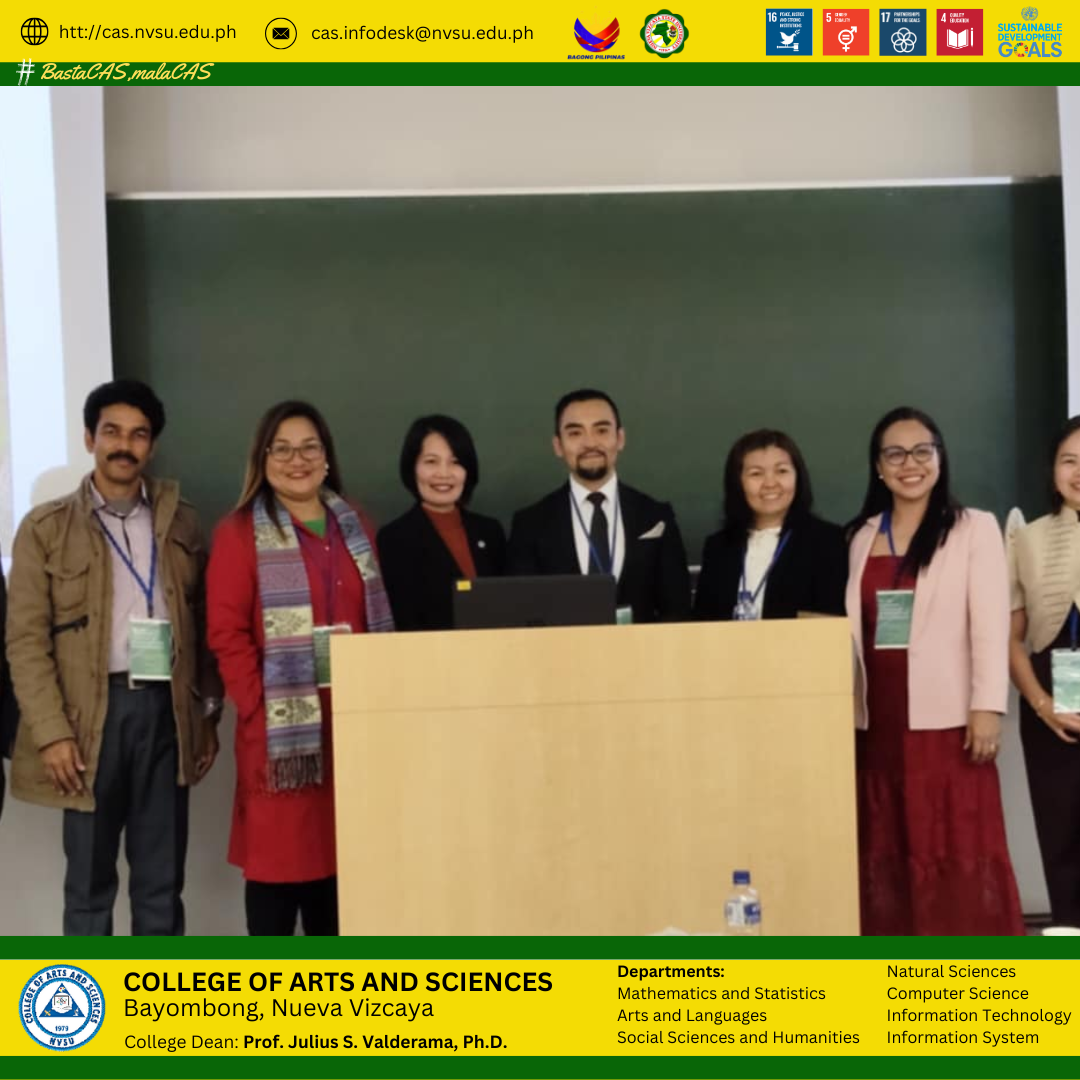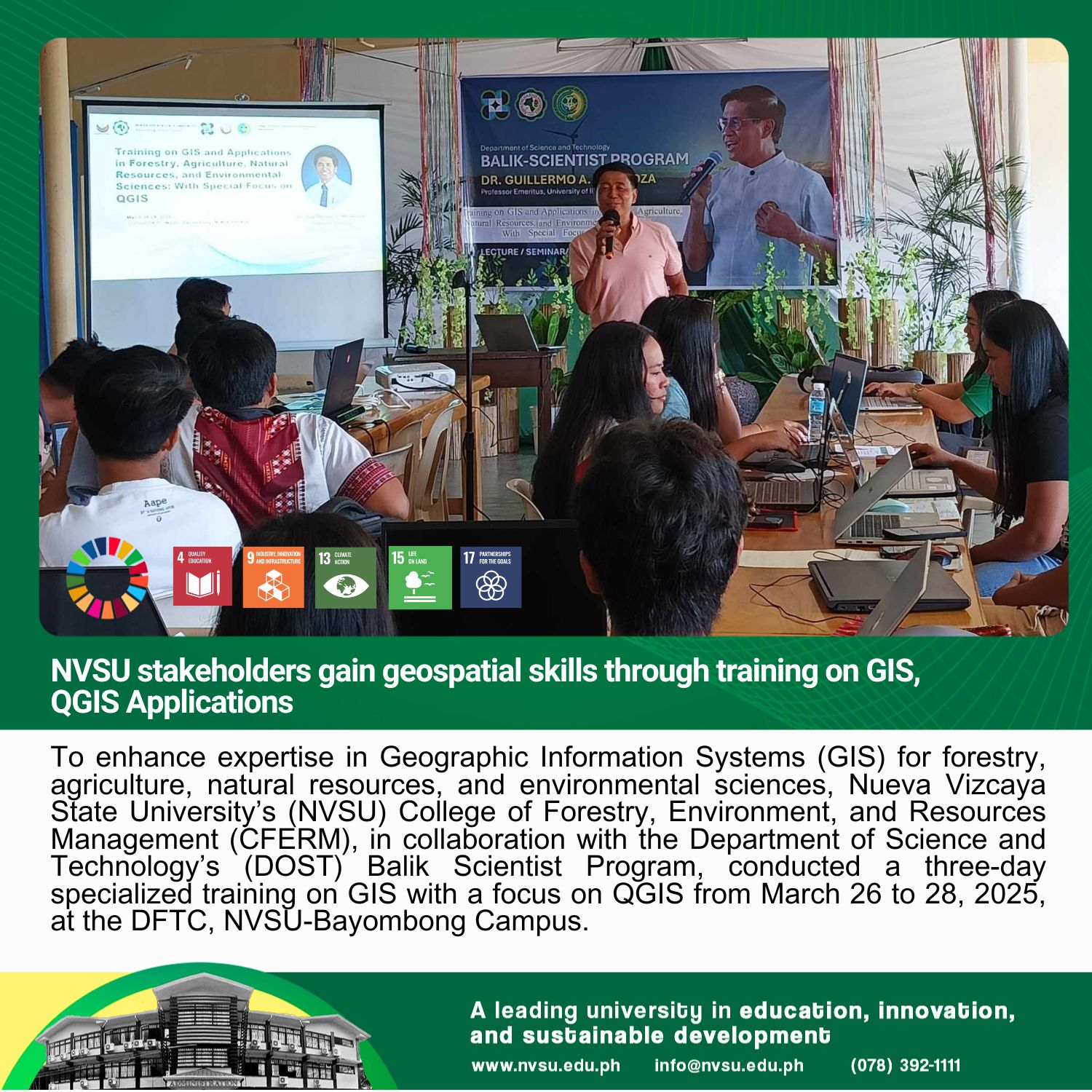
𝐈𝐓 𝐩𝐫𝐨𝐟𝐞𝐬𝐬𝐨𝐫 𝐣𝐨𝐢𝐧𝐬 𝐢𝐧𝐭'𝐥 𝐭𝐫𝐚𝐢𝐧𝐢𝐧𝐠 𝐨𝐧 𝐁𝐢𝐠 𝐃𝐚𝐭𝐚 𝐀𝐧𝐚𝐥𝐲𝐭𝐢𝐜𝐬 𝐟𝐨𝐫 𝐀𝐠𝐫𝐢
A faculty member of the Nueva Vizcaya State University (NVSU) recently took part in an international training on Big Data Analytics in the Agrifood Sector, held from February 17 to 20, 2025 through a virtual conference.
The 4-day online event, organized by the Thailand Productivity Institute and the Asian Productivity Organization (APO) Secretariat, gathered experts and participants from various countries to explore data-driven solutions for modern agricultural challenges.
Michael R. Lacar, an assistant professor from the NVSU College of Arts and Sciences, joined the training to deepen his understanding of how artificial intelligence (AI), the Internet of Things (IoT), and blockchain can improve farming and food supply systems. Discussions covered real-world applications, including soil and crop health monitoring, water resource management, and supply chain optimization.
The training featured experts such as Dr. Rodney Wee, who led discussions on algorithms for analytics and AI-driven data processing, and Mr. Audthasit Wongmaneeroj, who presented case studies on tailored fertilizer technology and soil data applications in Thailand. Other key sessions included precision conservation strategies in the USA, spatio-temporal water resource analysis in India, and natural capital accounting for sustainable food production.
“The training provided valuable insights into how technology can improve agricultural productivity and sustainability,” Lacar said. “With the knowledge gained, I plan to integrate Big Data concepts into our IT courses and research projects at NVSU.”
The sessions emphasized the role of AI-driven analytics, remote sensing, and smart monitoring tools in precision farming. Participants engaged in case studies and group activities that demonstrated how digital transformation can benefit agribusinesses and food production systems. Discussions also touched on optimizing logistics, transport, and distribution in the agri-food supply chain, as well as leveraging data mining in food retail operations.
As part of his commitment to sharing knowledge, Lacar plans to conduct an echo seminar at NVSU. He also aims to collaborate with agricultural institutions and government agencies to apply Big Data solutions in local farming communities.
The training aligns with the ongoing efforts of the university and other stakeholders to modernize the agriculture sector through sustainable technology-driven innovations.
Gallery:
